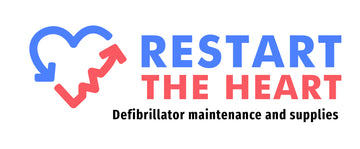The Need for AEDs in Rural and Remote Australian Communities
AEDs are an essential life-saving tool for communities across Australia, including rural and remote areas. Having an AED on hand in a cardiac emergency can mean the difference between life and death.
However, AEDs can be expensive, and many rural and remote communities may not have the resources to purchase or maintain one. This is why organisations and individuals need to contribute AEDs to these communities.
If you are considering purchasing an AED for your community, then it is essential to weigh up all of the factors involved. An AED can be a lifesaving piece of equipment, but it is vital to ensure that you are prepared to use it correctly.
How AEDs work?
An automated external defibrillator (AED) is a compact device that checks a person's heart rhythm and can transmit an electric shock to the heart to restore a normal rhythm.
AEDs are used to treat sudden cardiac arrest (SCA), which is a life-threatening condition in which the heart stops beating. SCA is a medical emergency that demands immediate treatment.
The most common cause of SCA is an abnormal heart rhythm called ventricular fibrillation (VF), a rapid, chaotic heart rhythm that is deadly if not treated immediately.
When someone has VF, their heart cannot pump blood effectively, and death can occur within minutes. An AED can shock the heart and restore a normal rhythm.
The shock resets the heart's electrical system and can often restore a normal heart rhythm. AEDs are safe and effective and have been used to save thousands of lives.
AEDs are designed for handling by laypeople with no medical training, and they are increasingly found in communal places such as airports, arenas, and schools.
Factors Affecting The Lack of AEDs in Rural and Remote Australian Communities
Many factors contribute to the lack of access to Automated External Defibrillators (AEDs) in rural and remote Australian communities.
One of the most vital details is the cost of the devices, which can be prohibitive for many small communities. Some are also worried about the parts, including defibrillator supplies and whole defibrillator maintenance.
Additionally, the lack of trained personnel in these areas means that even if an AED is available, there may not be someone on hand who knows how to use it.
Another significant factor is the often-isolated nature of rural and remote communities. This can make it challenging for emergency services to reach a community promptly, meaning that even if an AED is available, it may not arrive in time to be of use.
Finally, the often-inhospitable nature of the Australian landscape can make it difficult to deploy an AED in a rural or remote area. This is particularly true in areas with no road access or where the terrain is particularly challenging.
These factors contribute to the lack of access to AEDs in rural and remote Australian communities and underscore the importance of having trained personnel and well-maintained equipment.
Initial Solution
The Royal Flying Doctor Service (RFDS) recently reviewed data on cardiovascular disease among its patients in remote Australia. The review revealed which locations RFDS most commonly attends in response to a patient experiencing cardiac arrest.
Additionally, the review looked at national data on the prevalence of CHD. By mapping these locations and combining them with local knowledge from our service managers, the RFDS identified the best areas for providing an AED.
In South Australia, AED units were seen as a way to improve the "mantle of safety" and were connected with the Medical Chest management system (to help with pad changes and battery replacement).
The Senior Health Programs Advisor was responsible for coordinating the rollout and training for a new program. They started by researching similar programs and finding the best way to implement them based on what had been done in the past.
Conclusion
In conclusion, AEDs are essential for saving lives in rural and remote communities. By having an AED readily available, communities can be empowered to take control of their health and safety.
While AEDs are not a cure-all, they can be a vital piece of equipment in a cardiac emergency. With the support of the government and other organisations, AEDs can be made more widely available in rural and remote communities.
Restart the Heart is a trusted defibrillator supplier in Australia. We supply AED batteries and pads for all brands, ensuring fast delivery and excellent customer care. Simply order online today to get started.

